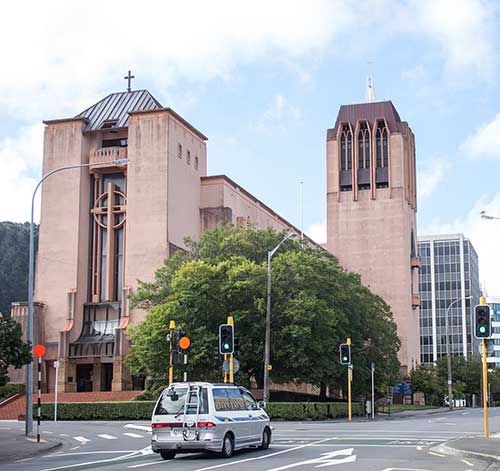
There’s been a lot of (sometimes heated) debate, recently, about who has the right to call themselves “Anglican”. The debate goes nowhere, in part because people are talking past each other: some are asking the question descriptively and others prescriptively. An example of being Anglican prescriptively would be: Anglicans are those who are recognised by and in full communion with the Archbishop of Canterbury. On the other hand, talking about Anglicans descriptively could include that clergy wear this or that type of robes; they accept baptism at any age; they have bishops;…
I’ve highlighted this prescriptive/descriptive confusion in my own discussions around “liturgical rules”. I encourage people to understand liturgical rules more descriptively. But most people I encounter struggle to see them other than (restrictively) prescriptive. I have regularly made a parallel between liturgical rules and the grammar rules of a language: grammar rules begin as descriptive, but, particularly when learning a language, there needs to be an element of understanding them prescriptively.
Recently, I posted a reflection that, at least in my own church, there is a dramatic reduction in using the Psalms as prayer. This reduction in praying the Psalms is seen when, in services, a Psalm is treated as a reading rather than a prayer. It is evidenced in dropping the Psalms altogether from services. It is seen in the decline of the praying of the Daily Office, and in the absence of the Daily Office in clergy study, training, and formation. This church even went through the complex process of removing the clergy requirement to pray the Daily Office:
All Priests and Deacons are to say daily the Morning and Evening Prayer either privately or openly, not being let by sickness, or some other urgent cause.
The Book of Common Prayer
To make such a significant change needed tenacity and widespread determination to remove the commitment to pray the Daily Office: we are legally obliged to fulfil the “twice round” process (passed at General Synod; agreement by majority of all diocesan synods; 2/3 majority in each House of General Synod).
On social media, the reaction to my post was HUGE. Including outrage at my points: how dare I say anyone is in danger of losing anything; any individual is free to pick up the Psalms and pray them;… I cannot recall more discussion on my twitter feed about anything else.
This tweet stood out:
This is such a radical departure from the rule of the Prayer Book that I wonder whether such a church can meaningfully be called Anglican.
Prescriptively, sure, we satisfy the requirement to be allowed to be called “Anglican”. Descriptively, however, the tweet has a point. The systematic abandonment of Common Prayer, in particular deserting the discipline of praying the Psalms, including daily, means we are not recognisable as being within the historic Anglican stream.
Discuss.
If you appreciated this post, consider liking the liturgy facebook page, and/or signing up for a not-very-often email, … if you are on Instagram, please follow @liturgy.



Good point. People are talking “past”each other. To abandon the obligation to say the daily office, a whole church seems a little strange. What does one hope to gain? Seems to me if clergy don’t want to do something they simply don’t do it. To then go to the trouble of disestablishing the obligation seems a lot of costly time and trouble that achieves little for the Kingdom? The discipline of the Office and the Lectionary ensured the individual was exposed to the tricky bits they would rather avoid. Many would love to adopt the ‘Gospel of Paul’ to intemperate all else and simply ignore equally authoritative texts. A lurch towards individualism ?
Yes, absolutely, thanks, Richard. An individual ignoring a rule is one thing – that our church went through our complexities to remove the rule and thereby sabotage the undergirding reason for the rule as a church is quite another. Did you read my earlier post that led to this one? Blessings.
Hi Bosco,
I want very much to engage in this thread but first could do with increasing my knowledge. Would someone whose experience goes back the three decades since the requirement of all clergy to say the Daily Prayer was removed, please explain what the declared motivation was for doing so? Given the complexities of achieving such a removal the intention to do so must have been compelling to those who sponsored the change.
I cannot imagine what might have driven General Synod to pass a motion (twice) to encourage clergy to pray less! Will someone enlighten me, please?
I’m going to tweet the question, Peter; it’s such a good one. Blessings.
While there is a necessary order and discipline for the functioning of the Anglican Church my understanding at this point is that the core foundation of our faith and its expression through formal worship is our acceptance of the unconditional love of God with the divine gifts imparted to us of love, freedom and grace – against which there can be no law. Therefore removing legalisms like compulsory daily offices and a variety of other such is a logical affirmation of these first principles
Is this, John, what you understand to have motivated the change? And, if so, why did, for example, the lectionary not also go; and the requirement to wear robes when presiding at the Eucharist; etc., etc., etc.? Blessings.